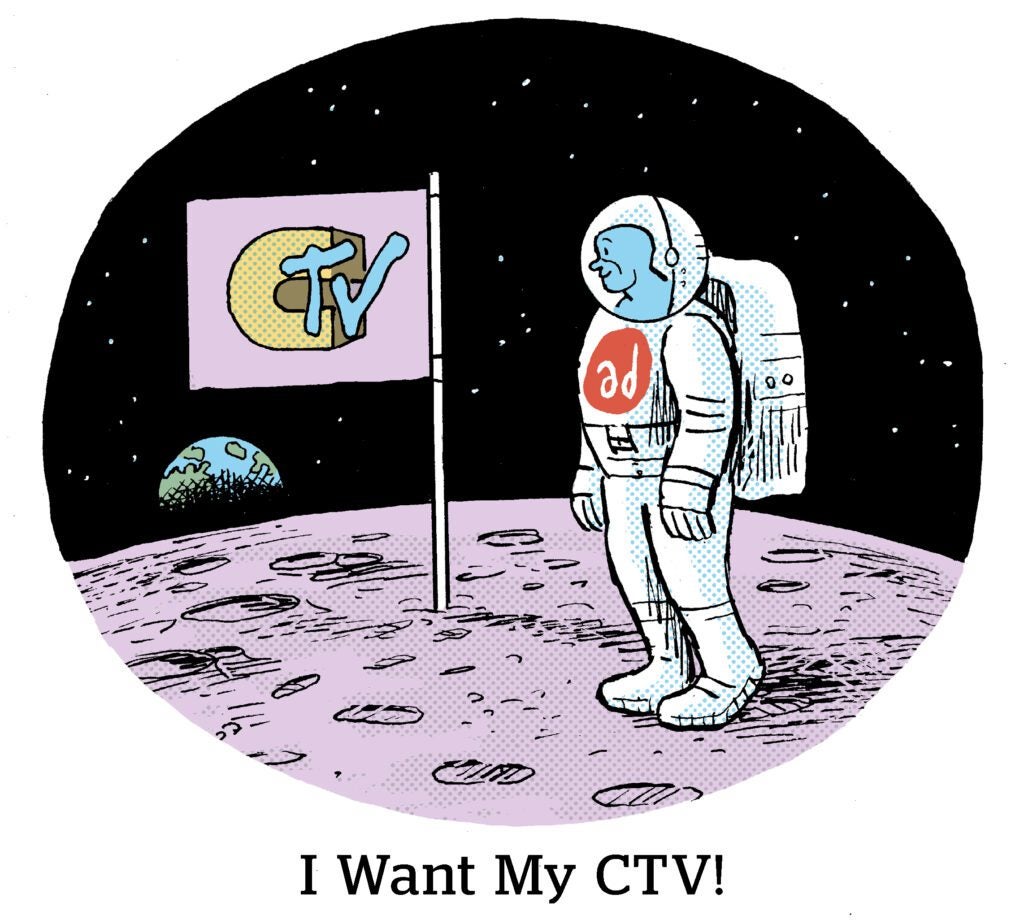Roku wants ad buyers to know it’s no walled garden.
On Wednesday, Roku announced what it’s calling the Roku Exchange. Think of it as a more direct path between Roku’s ad supply and programmatic demand, Louqman Parampath, VP of product management, told AdExchanger.
Over the past year, Roku has busily inked partnerships with demand-side platforms, including those that work with smaller or more local advertisers. Roku Exchange is its way of making sure programmatic buys come with the same data that direct buyers get, Parampath said.
And, specifically, buyers want more info about the content surrounding their ads.
If this goal sounds familiar, it’s because CTV streamers like Disney and NBCUniversal are especially loud about creating data parity between direct and programmatic campaigns.
But in Roku’s case, programmatic upgrades also push buyers to spend more money with its DSP. Since agencies and advertisers want to use fewer ad tech intermediaries, accommodating buyers on some of their transparency requests could bring spend from third-party DSPs into Roku.
More transparency
DSPs are an important part of the Roku Exchange equation, though. The tech is integrated with an array of DSPs Roku works with, as well as partners on the supply side, such as Magnite, which creates closer connections between different third-party ad tech vendors in the Roku online ad chain.
The ad buying workflow is, for the most part, unchanged, Parampath said. It’s the data and signals passing through the bid stream that are different.
Historically, Parampath said advertisers “had to buy directly from us” for any kind of clarity in terms of the content or type of content surrounding an ad.
But with the Roku Exchange, programmatic buyers can access the same data as direct buyers, he said, such as the length of ad breaks and when those breaks happen within a particular stream. Programmatic buyers also get more metadata about networks and channels, including genre.
However, buyers hoping for more detailed show-level transparency from Roku will have to keep waiting. The Video Privacy Protection Act makes it risky for Roku to pass identifiers in the bid stream that are tied to what shows someone is watching, Parampath said.
Still, increasing the amount of data Roku is willing to share is its way of supporting how more and more buyers want to get their CTV supply: programmatically. And the more data Roku shares through the bid stream, he said, the more effectively it can help programmatic buyers address pain points like ad repetition and frequency.
Conveniently for Roku, though, its pitch for data parity could actually push buyers to its own pipes.
If agencies can get more data out of Roku buys, they don’t need to rely on other DSPs to fill in that gap, Sam Bloom, head of partnerships of PMG, told AdExchanger.
PMG, for one, can consolidate some ad spend within Roku’s DSP rather than juggling multiple DSP workflows for the same clients. Ad tech consolidation is “naturally happening in the marketplace,” Bloom said, because managing campaigns in one place lessens a buyer’s risk of bidding against themself.
The next frontier: Home screen ads
To start, Roku Exchange will help curate inventory packages for pre-roll and mid-roll ads across The Roku Channel and the other content Roku distributes.
Eventually, programmatic packages will include home screen ad units, such as marquee ads and billboard-style units, like those on the Roku City screen saver. Parampath declined to share when these formats will be available programmatically.
He did, however, say Roku Exchange can create inventory packages that cover different deal types for programmatic buyers that want Roku’s home screen supply.
In that sense, more transparency in the bidstream will still help Roku advertisers that want to plan and optimize campaigns with the newer ad formats Roku has launched over the past year and a half, Parampath said.
From a programmatic standpoint, ads beyond the 15- and 30-second spot are still a work in progress, he said. But they’re the next frontier in Roku’s quest to “make advertising on Roku more personalized.”













